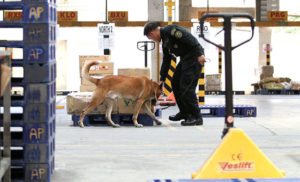Malacañang has expressed support for a bill seeking stiffer penalties for people spreading bomb hoaxes.
In a radio interview on Thursday, Executive Secretary Salvador Medialdea said bomb threats are not a joking matter.
“This is not a joke,” Medialdea stressed, citing the recent night market bombing in Davao City that killed 14 people and injured 70 others.
Medialdea issued the statement after a series of bomb threats rattled schools in Metro Manila.
In the first week of September alone, bomb threats have rocked Makati City Hall, Don Alejandro Roces Science Technology High School in Quezon City, University of Southeastern Philippines in Davao City, University of the Philippines-Diliman in Quezon City, and schools near Malacañang in Manila.
The Palace official said it is time for Congress to impose harsh punishment on persons who cause undue alarm by spreading false bomb threat.
“We are in favor of such a law if only to quell these unpalatable jokes. We should be disciplined when it comes to this matter,” Medialdea said.
House Deputy Speaker Miro Quimbo filed a measure which pushes for heftier penalties against false tips on bomb threats.
An existing law, Presidential Decree No. 1727 enacted in 1980, penalizes those found guilty of “communicating false information on attempts to damage or destroy any property through explosives.”
But Quimbo said the law needs to be amended as current penalties are minimal with “imprisonment of not more than five years and/or a fine of not more than P40,000.”
House Bill No. 421 or the “False Bomb Threat Prohibition Act of 2016” seeks to raise the fine to P1 million to P5 million and lengthen the jail term to six to twelve months for people found guilty of disseminating false information on the presence of bombs in populated places including public parks, airports, seaports, hotels, malls, educational institutions, offices, government institutions and churches.
“False bomb threats lead to unnecessary anxiety for the people, disruption of regular activities, economic costs from opportunity lost for productivity due to evacuation, and waste of law enforcement and emergency response resources,” Quimbo said.
“Time is wasted only to the whim of pranksters who deliberately plant false bomb messages just to disturb the area. More importantly, it puts children at risk to stampedes and psychological trauma,” he added.



